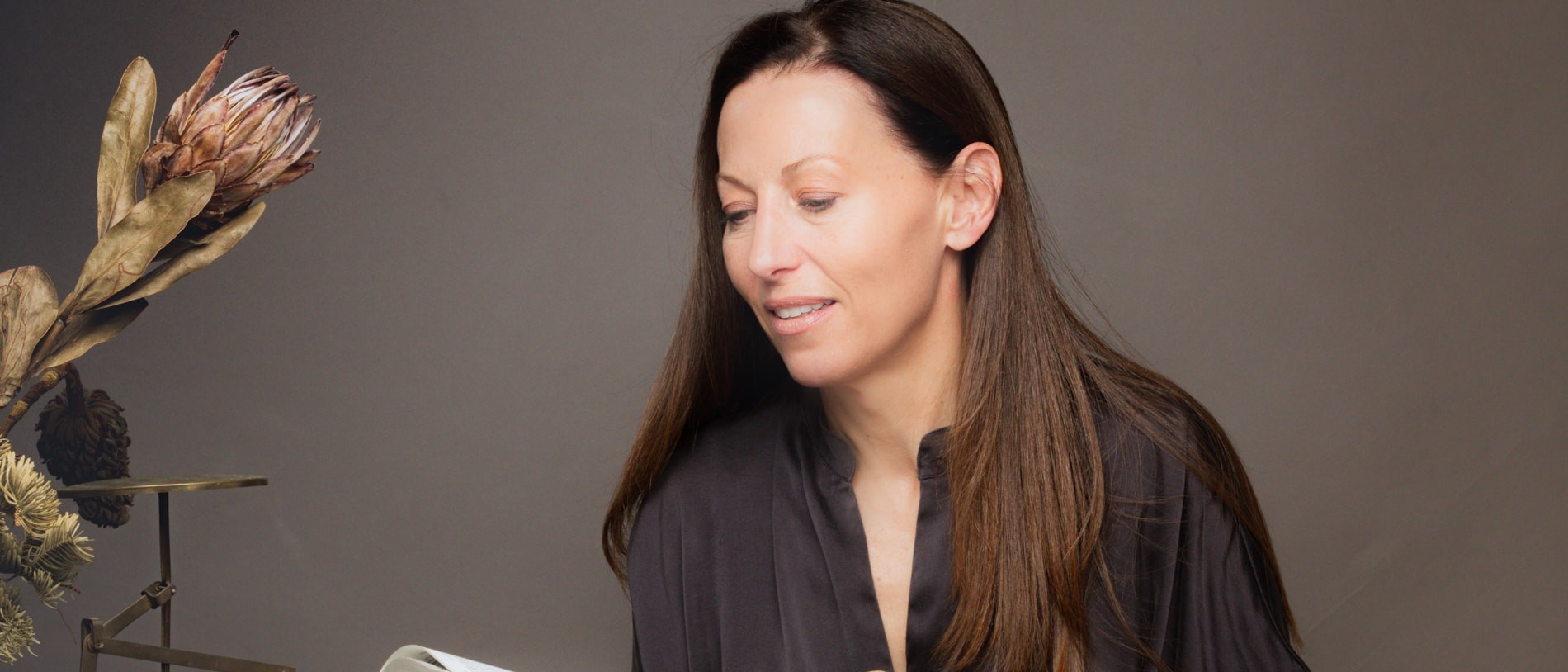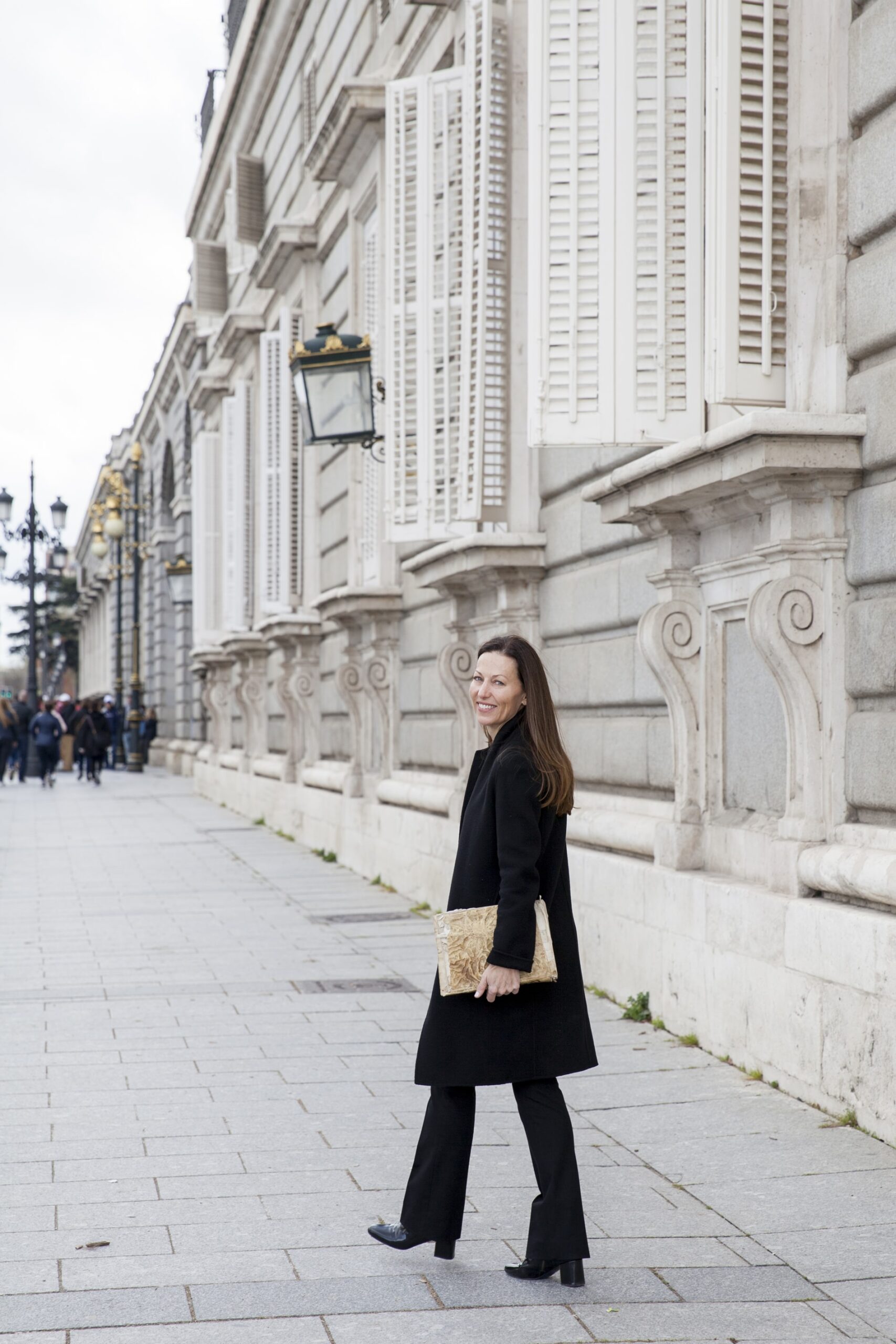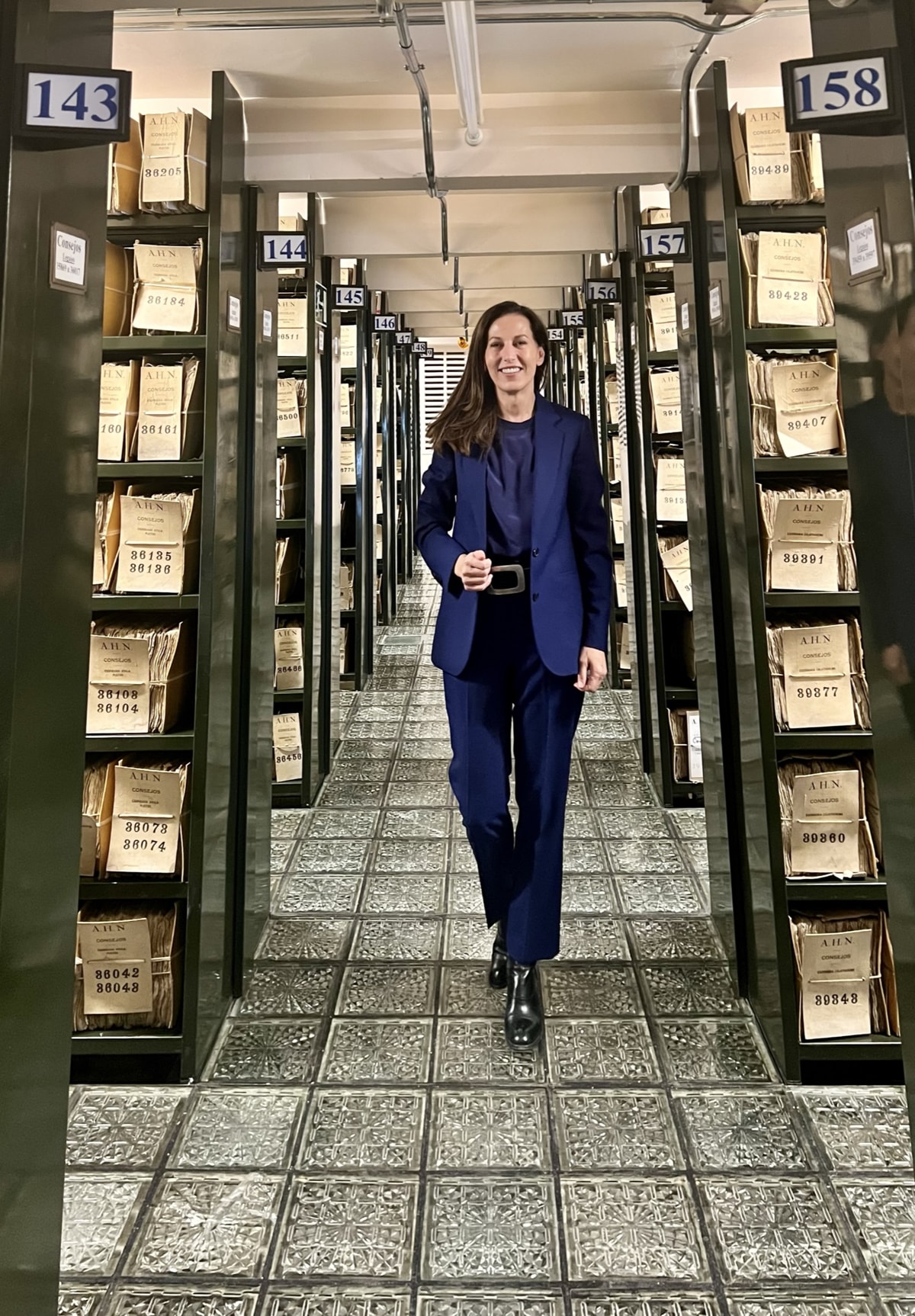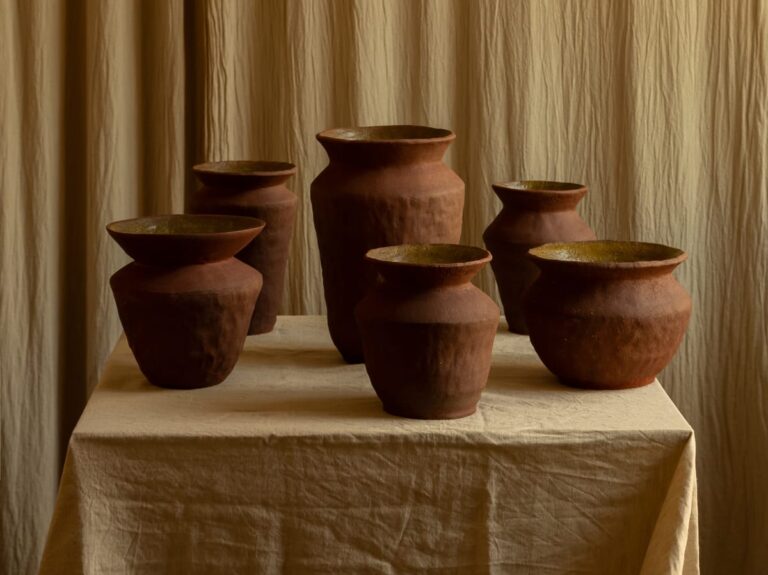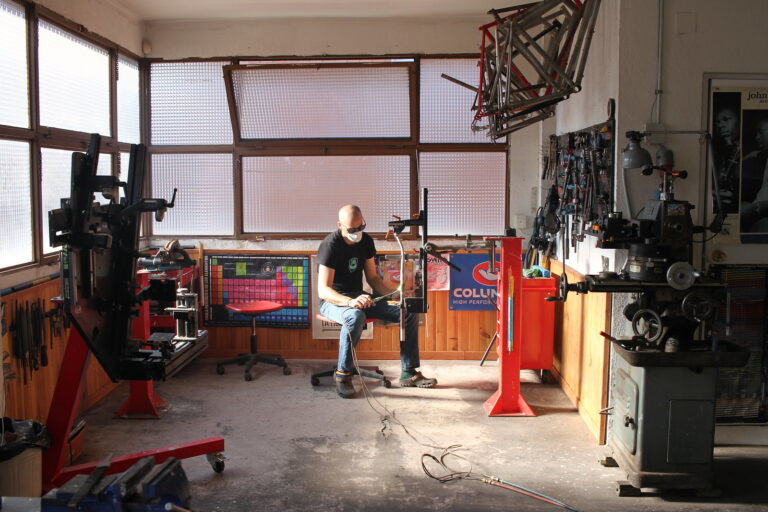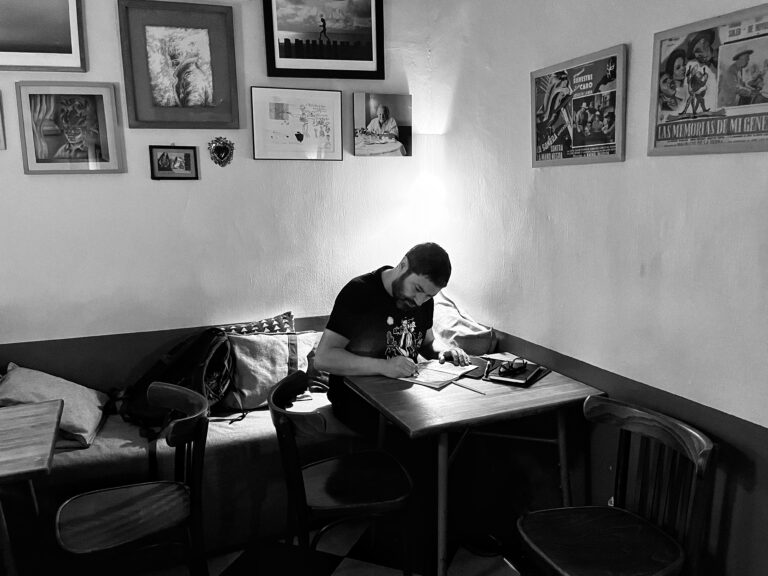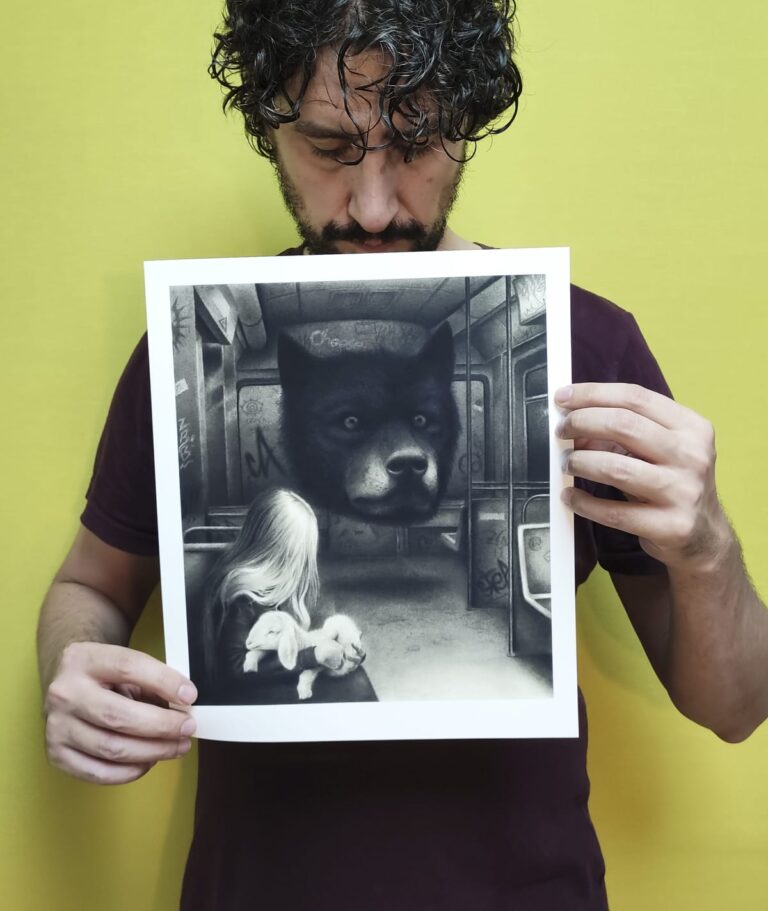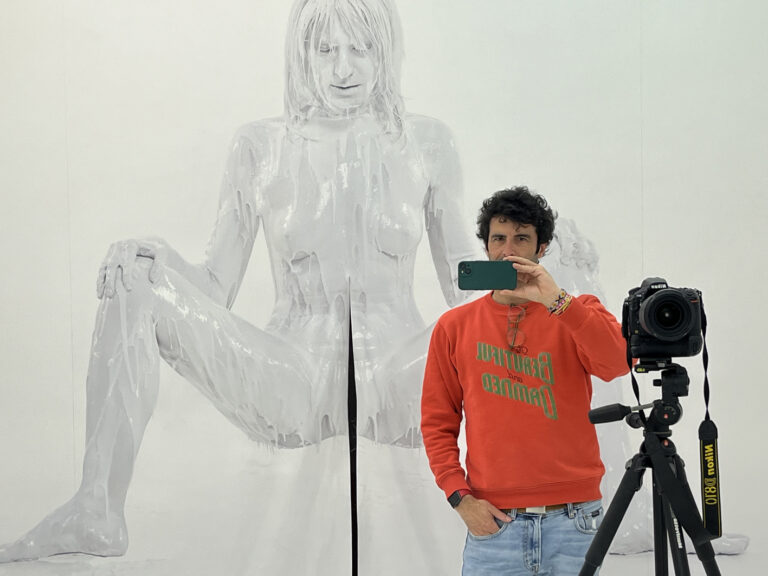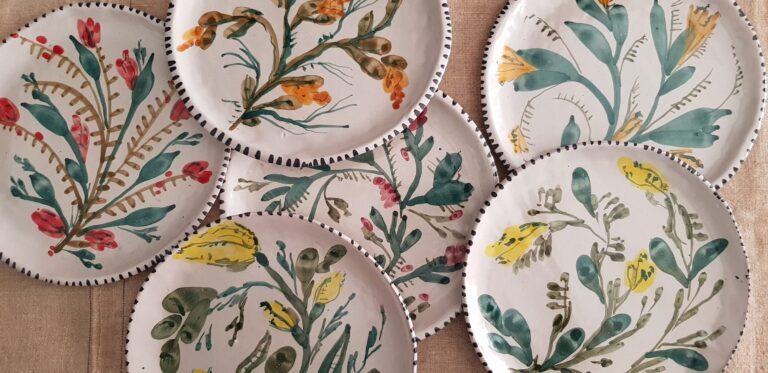María José Rubio – Historian and Writer
Es difícil hoy en día -a pesar de las opciones que otorga la globalización, internet, las redes sociales, la variedad de oportunidades y la disponibilidad de cualquier cosa muy rápido – encontrar un “Leonardo da Vinci” moderno que desarrolle funciones muy dispares, materias extremadamente separadas por técnica y práctica. Pero más fácil resulta ver cómo, dentro de un mismo campo, todavía quedan personas, que consiguen tal diversificación y de tal calidad que, obviamente nos admiran con sus resultados.
Es el caso de nuestra protagonista, María José Rubio, una humanista que lleva el campo de la comunicación a su máxima expresión. Lo mismo escribe libros históricos que divulga cultura e historia en un podcast. Entra por la puerta de una biblioteca y sale por la de un archivo, con una nueva pieza de investigación. Del mismo modo imparte una charla sobre desarrollo humano que una conferencia sobre un personaje histórico. Igual que cuenta historias en radio, engancha contando vidas en la televisión… Sus “letras” están en museos, documentales y revistas especializadas. Habla, escribe, enseña, comparte. Y todo lo que hace engancha de alguna manera.

Her novel “El cerrajero del Rey” was awarded the City of Cartagena Historical Novel Award in 2012, the same year she was named an academic by the Royal Academy of Fine Arts and Historical Sciences of Toledo. Today, María José tells us a little more about her world:
Hello María José. Do you remember the moment you decided to dedicate yourself to “letters”?
Yes, as a child, when in my parents' library I discovered Gone with the Wind by Margaret Mitchell, in its original edition. It was a dedicated gift from my father to my mother when they were dating. I read it when I was 15 years old. Then I saw the movie, which fascinated me. I decided that I would dedicate my life to recomposing worlds, stories, and characters, with that same exciting epic.
You were born, live, and work in Madrid. Which historical figure would you hang out with, and in which neighborhood of the capital?
I would hang out in the Salamanca neighborhood with its founder, José de Salamanca y Mayol, Marquis of Salamanca, a charismatic, cultured, bold, visionary, entrepreneurial man – a bit of a scoundrel too; Without a doubt one of the most interesting characters in Spain in the 19th century, who transformed the city and boosted the country economically. I would love to talk to him.
If we take into account what glù understands by “craft”, can we apply the word to any process in your work?
The process of my cultural work has a lot to do with craftsmanship. Writing books like the ones I write involves vocation, passion, methodical and careful work, love for excellence, and the beauty of the result, which transcends the product itself. It is an “intellectual craft”, in which for an excellent result there are no possible shortcuts, but rather the careful journey through all the processes that something well done requires.
Do you have any cultural institution that attracts you more than another, or that seems more welcoming to you?
The Royal Palace of Madrid and the Prado Museum. They are the History of Spain, the sublime image of another unbeatable association: power and culture. Art as an image, personal brand, and “watchword” of power.
What is your favorite place in Madrid?
The Plaza de Oriente, with another great combination: the Royal Palace and the Royal Theater. Two large scenarios face each other on their facades: one is a real-life scenario, the other a fictional one. Which is which? It is a very literary game. I live nearby and pass by there almost daily. It inspires me a lot.
And, your favorite corner of the world of communication?
The research process for a book is always a paradise for me. Abraham Lincoln said that if he was given 6 hours to cut down a tree, he would spend the first 4 sharpening the axe. Well, like me, 70% of the time writing a book is dedicated to research. After that, the literary part comes rolling, confident, and inspired. I also really enjoy the subsequent gift of communication in the media and sharing myself with those who are interested in the same thing.
Being a historian, writer, and philosopher, you can surely express with accurate words what you feel when your work is recognized effectively. Can you tell us?
For every “creator” in the world of Culture, recognition of your work is food for the soul; It is what gives meaning to your vocation, dedication, and effort. In your work you pour your life, your entire person, your mind and heart; your life project. Therefore, the fulfillment that is felt with effective recognition is immense. Sometimes it is a prize; but other times they are beautiful and grateful words from a reader, or a student, that have even more value because the reward is the good you do for other people.
Do you have hobbies outside of your work?
I do not distinguish between “work” and “life”, between “inside” and “outside”. Everything is part of my life project, and I am always the same, writing, teaching, traveling, or doing sports and crafts. I love and am interested in everything that offers goodness and beauty. Of course, I hope that culture permeates everything I do.
Our previous protagonist, OXIA Cycles, left this question in the air: “If you had the option to travel to your past, what would you tell yourself?””
I would tell myself: "You have a treasure of vocation and mission in your hands... and you know it. Give it a go!"
What is the job you currently spend the most time doing?
As a historian-writer, I divide my time into a triad: research and writing; conferences, classes, and cultural events; and media collaboration (TV, radio, and podcast). Everyone enriches each other, and in everyone, I seek to leave a mark, impact, permanence, authority.

What is the most distant or exotic place you have traveled to for professional commitments?
Lately to the small and local archives of Norwich (England) and Nantes (France) because they treasure an interesting part of the History of Spain, which I will soon tell in a book...
What professional “son” do you have an unforgettable memory of?
Without a doubt, from the biography of the Infanta Isabel de Borbón, “La Chata”. The professional journey that this book has allowed me and the resonance it continues to have is impressive. Also the creation of the “Sociedad Bicentenario General Prim 2014”, which I directed. It taught me very interesting and painful things about the dangers of ignorance, lack of culture, and the manipulation of history in the media.
Do you use electronic books?
Just to investigate. It is a great tool for research because it gives access to a world of impressive global information.
Can we ask you to leave us a question for our next protagonist to answer?
Of course!: “What values do you think you transmit with your professional dedication?”

